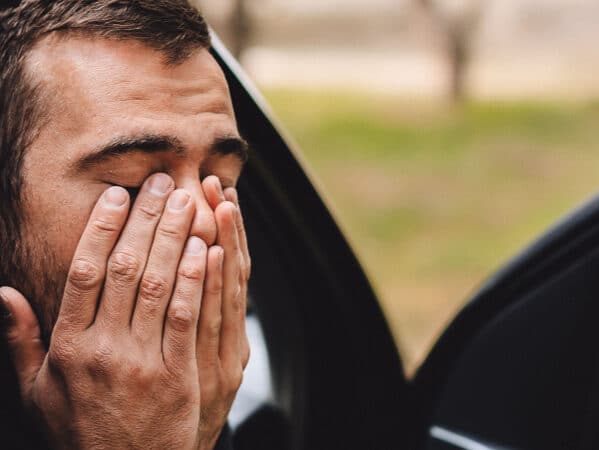Severe Valium overdoses can cause a person to fall into a coma and potentially depress heart and breathing rates to dangerous levels. Fatalities are rare but possible.[1]
Understanding How a Valium Overdose Can Happen
Valium, a brand name for the drug diazepam, is in a class of medications called benzodiazepines. Benzodiazepines are central nervous system (CNS) depressants, meaning they slow down the speed at which signals travel in the body. People take Valium for a range of mental and physical health reasons, from anxiety disorders to muscle spasms.
When taken as prescribed, there should not generally be a risk of overdose with this drug. However, this depression of the CNS can become dangerous if you take too much of a benzodiazepine, abuse benzodiazepines, or mix a benzodiazepine with other drugs that may have stacking effects.
Researchers say adults typically take between 2mg and 10mg of Valium between two and four times a day. While no amount of Valium has been identified as causing an overdose in everyone, overdoses typically involve a massive amount of the drug, such as 500 mg to 2,000 mg at one time.[10]
Mixing Valium with other substances can dramatically change the math. Overdose risks rise when people combine their drugs with other CNS depressants like opioids or alcohol. It’s impossible to predict how much Valium you can take while drinking. No amount is truly safe, programs like our Indiana drug and alcohol rehab can help address misuse safely.
What Are the Signs & Symptoms of Overdosing on Valium?
The most common side effects associated with overdosing on benzodiazepines like Valium include the following:
Sedation
Double vision
Reduced coordination
Difficulty speaking
Intellectual impairment
These side effects can also occur with regular, prescribed Valium use, but they will generally be less intense and not last as long.
Other symptoms associated with overdose include the following:
Blue-tinged lips and fingernails
Confusion
Depression
Dizziness
Excitability
Hiccups
Rapid side-to-side eye movement
Rash
Stomach upset
Tiredness
Tremor
Weakness
If you experience any of these symptoms, contact a doctor immediately, even if you have only taken the medication as intended.
Severe Overdose Symptoms
In more serious cases of Valium overdose, a person can experience severe CNS depression, which can cause them to fall into a coma.[1] This is a rare side effect.
The most serious risk of overdosing on Valium is life-threatening respiratory depression. While not common when the drug is taken on its own, it is still possible if the drug is taken in high doses.
Overdose vs. Regular Use
Anyone can experience Valium side effects, including people who take the drug as directed by a doctor. These side effects can be different than those you might experience during an overdose. This table can help you understand the difference.
| Common Side Effects | Overdose Symptoms |
|---|---|
| Mild drowsiness | Drowsiness |
| Fatigue | Confusion |
| Muscle weakness | Reduced reflexes |
| Lack of muscle control | Respiratory depression or coma |

How to Treat a Valium Overdose
Taking too much Valium should be treated as a medical emergency, especially if the individual is having trouble remaining conscious or cannot be awakened when unconscious. Call 911 or take them to the hospital immediately.
Valium overdoses typically only require clinical observation and supportive care, where medical professionals monitor a person’s status and make sure they can breathe. In especially severe cases, the drug flumazenil may be used, but this drug can cause its own serious side complications, including seizures. Because of this, its use is avoided when possible.
Risk Factors for Valium Overdose
The biggest risk factor for a Valium overdose is taking more of the medication than prescribed, either intentionally or accidentally. While you should always follow your doctor’s specific instructions, typical dosing for diazepam (the generic form of Valium) is as follows:[3]
For Muscle Spasms
2–15 mg a day
For Sleep Problems
5–15 mg a day
For Anxiety
15–30 mg a day
Dosing is often kept lower for people over 65 years old, those with kidney problems or liver problems, and those with severe breathing problems.[3]
In 2023, the Centers for Disease Control and Prevention (CDC) examined how many people died from unintentional drug overdoses. They found that 6,900 overdose deaths that year were attributed directly to benzodiazepines like Valium, while 68,239 overdose deaths occurred in all.
Your risk of overdose increases if you take Valium with other drugs that can cause CNS depression, including alcohol and other benzodiazepines. Additional CDC research suggests that more than 90% of benzodiazepine-involved deaths also involved opioids.


Valium Addiction Treatment
What to Do During a Valium Overdose
Someone may take a higher dose of Valium than they’re used to because they believe it will have a more significant effect on their health, though the inverse is typically true.
If you think someone has overdosed, take the following steps:
Ask the person what they took. Did they combine the Valium with anything else?
Guide the person to a quiet, calm room away from bright lights and loud noises.
Ensure that they are breathing.
If the person has stopped breathing and used opioids with Valium, give naloxone (Narcan). This medication can’t reverse a Valium overdose, but it can reverse the signs of opioid overdose.
Place the person on their side, so they don’t vomit and choke.
With the immediate steps in place, ask for additional help. Call 911 and tell the operator your current location and the situation. Follow any instructions you’re given and stay with the person until help arrives.
Monitor the person’s breathing and heart rate. If it slows dramatically or stops, you may need to begin CPR. If you don’t know how to properly perform CPR, ask anyone nearby if they have the appropriate training and inform them about the situation.
An overdose is often a sign that Valium addiction treatment is needed. Without professional care to address Valium withdrawal and underlying issues that contribute to substance abuse, another overdose may occur with future abuse. Treatment for a Valium addiction may include medical detox, inpatient treatment, outpatient services, and long-term aftercare to support recovery and can be done through our Massachusetts drug detox program.
FAQs About Valium Overdose
The following are some frequently asked questions about Valium overdose:
Yes, you can overdose on Valium. While it’s rare to fatally overdose on Valium alone, it is possible.[5] The drug can also become much more dangerous if mixed with other drugs that depress the central nervous system (CNS), such as opioids or alcohol.
The exact amount of Valium that is likely to cause an overdose in humans is not well-studied, and it can vary greatly according to personal factors. You should only take the drug exactly as prescribed. Doses above 30 mg a day are rare.
It’s possible to die from a Valium overdose but uncommon. In high doses, Valium can slow the heart and depress a person’s breathing. In extreme cases, this can lead to permanent brain damage or death. When Valium is combined with other substances, a fatal overdose is more likely.
Yes, you can overdose on valium and alcohol. The drug becomes much more dangerous when mixed with other drugs that depress the central nervous system (CNS), which includes opioids or alcohol.
- Diazepam INCHEM. Published April 1990. Accessed October 3, 2023.
- Benzodiazepine toxicity Kang M, Ghassemzadeh S., StatPearls. Updated June 26, 2023. Accessed October 3, 2023.
- How and when to take diazepam UK NHS. Published February 3, 2022. Accessed September 19, 2023
- Flumazenil in benzodiazepine overdose An H, Godwin J., Canadian Medical Association Journal. 2016;188(17-18):E537-E537.
- Retrospective review of morbidity and mortality associated with acute benzodiazepine withdrawal at a Midwestern academic medical center Thornton SL, Whitacre J, Pallo N, Roberts N, Oller L., Kansas Journal of Medicine. 2021;14:77-79
- Diazepam Dhaliwal JS, Saadabadi A., National Library of Medicine. Published 2019. Accessed October 3, 2023
- Benzodiazepine-involved overdose deaths in the USA: 2000 to 2019. Kleinman R, Weiss R. Journal of General Internal Medicine. 2022;37(8):2103-2109.
- Trends in nonfatal and fatal overdoses involving benzodiazepines—38 states and the District of Columbia, 2019-2020. Liu S, O’Donnell J, Gladden R, et al. Centers for Disease Control and Prevention. 2021;70(34):1136-1141.
- Diazepam. Medscape. Accessed February 21, 2024.
- Rapid recovery from massive diazepam overdose. Greenblatt D, Woo E, Allen M. JAMA. 1978;240(17):1872-1874.
- What to Do in an Emergency. Frank.
- Valium. U.S. Food and Drug Administration. Published 2016. Accessed February 21, 2024.
















